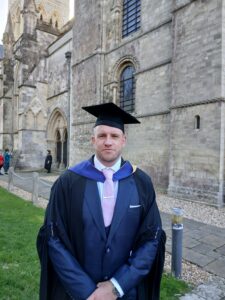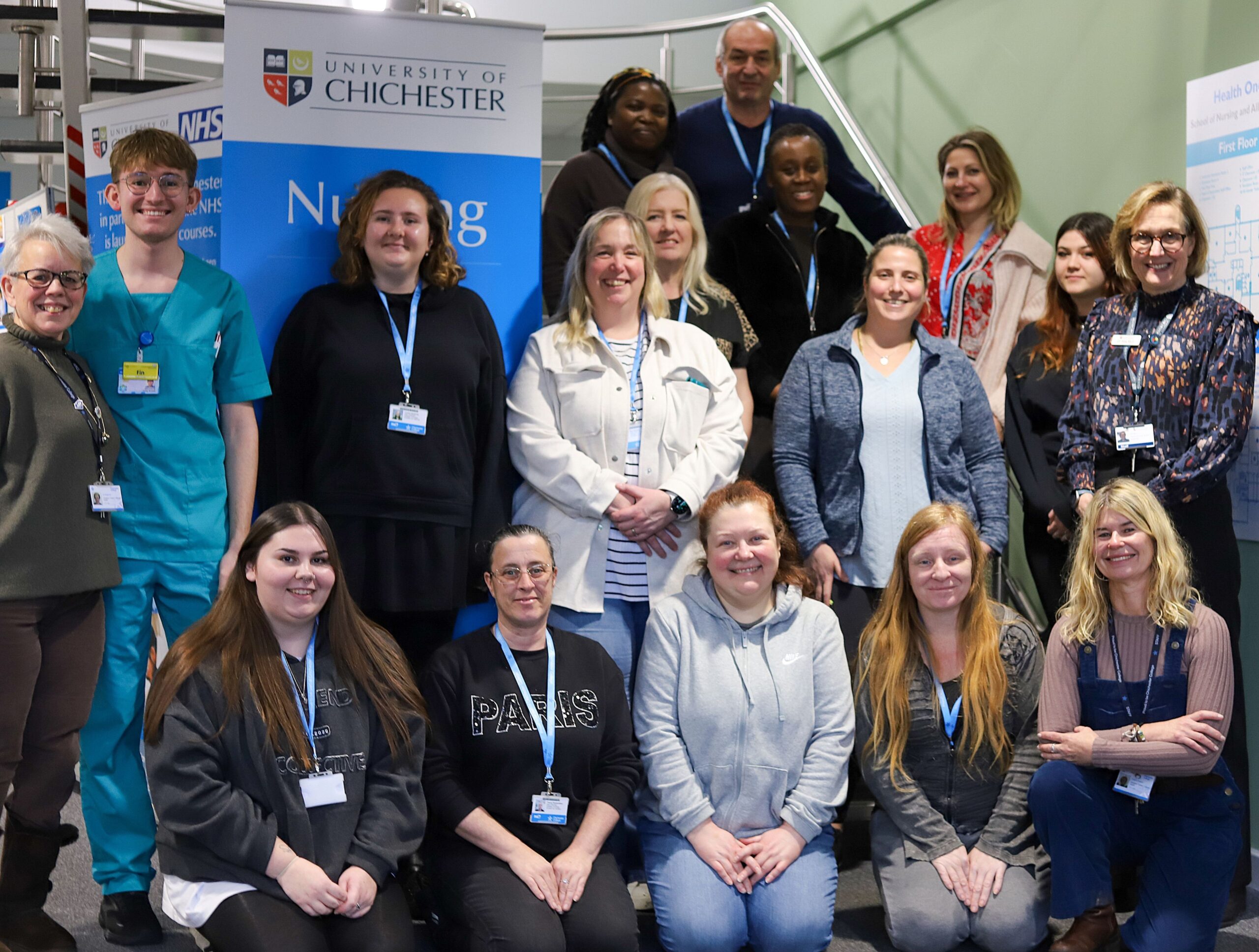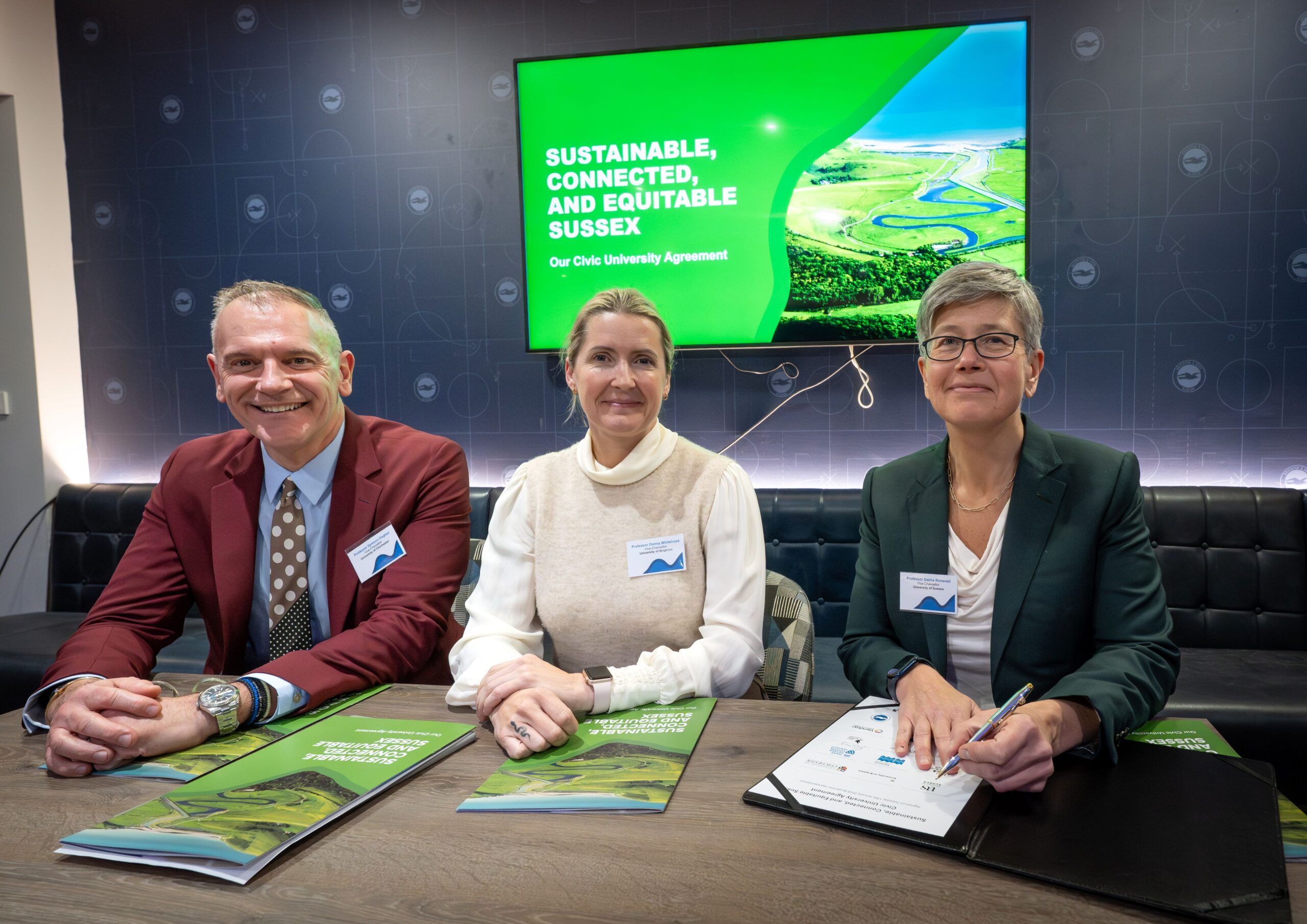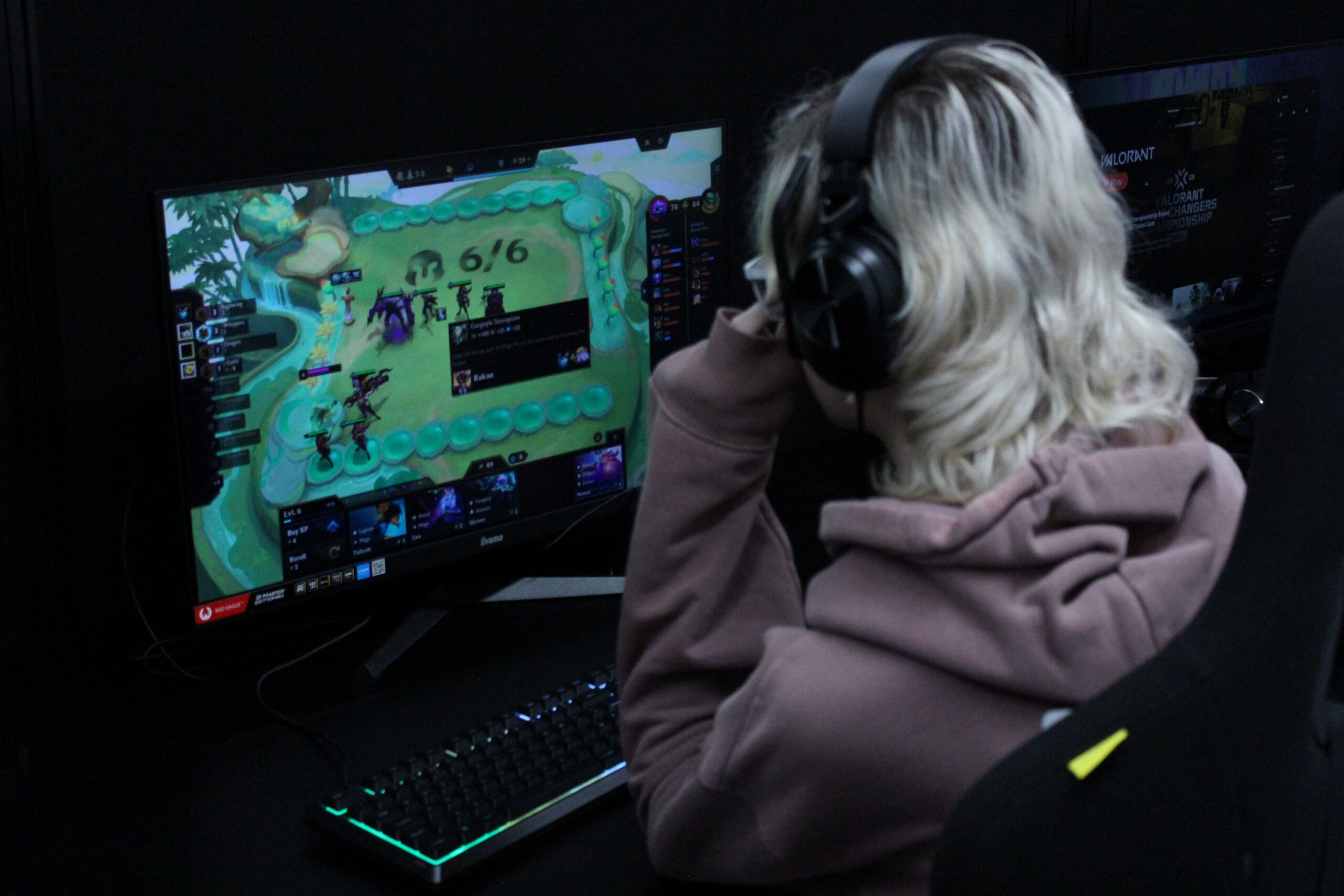‘Everyone is capable of achieving a degree if they allow themselves to believe it’

Dominic Merrington graduated with a BA (Hons) Sociology after completing the Adversity to University bridging module at the University of Chichester.
Why did you decide to study at the University of Chichester?
After losing a business during the Covid-19 pandemic and managing ongoing back issues, I began exploring new directions, including higher education. I came across the Bridging Module at the University of Chichester and completed it with a First. That experience initiated newfound confidence and curiosity, and applying for a degree felt like a natural next step.
At the time, I wasn’t sure how far my academic abilities would take me, as I did not advance at school. However, I was willing to take the gamble at university, and I received a lot of support from Becky Edwards, who leads the module.
It was during that course that I was introduced to Sociology. I was immediately drawn to its diversity of topics, its critical lens on social issues, and the opportunity to explore how societal decisions shape everyday life. It felt like a subject that could help me make sense of the world and contribute meaningfully to it.
Tell us about your highlights or the best parts of your university experience.
One of the best parts of my university experience was discovering my academic ability after years of assuming I didn’t have it. Sociology encouraged me to ask difficult questions and explore topics I’d never considered before. It challenged me to look at social issues from entirely new perspectives. Studying the subject changed how I see the world; it taught me to approach information with a critical lens rather than simply absorb what’s presented through the media.
Finishing my dissertation was a standout moment. It took months of planning, and I developed qualitative data analysis skills to a high standard. I designed and conducted my own research, sourced participants, analysed the data, and developed a new concept from it. I received my highest academic mark, an 85, which genuinely blew me away and felt like a great note to finish my academic career on.
What obstacles have you had to overcome to get to where you are now?
One of the biggest obstacles was overcoming my own doubts about academic ability. I didn’t advance at school, so entering university felt like a risk. I had to learn how to write academically, manage deadlines, and trust my own thinking. The Bridging Module helped me build confidence and learn the basics, but I still had to push through many moments of uncertainty and imposter syndrome.
I was also blessed with the birth of my first child in the summer between my second and third year. The pregnancy was difficult and affected by multiple health concerns, and shortly after birth, my son became quite ill. Balancing academic work with the emotional and practical demands of that period was incredibly tough. It tested my resilience and time management, and there were times I didn’t think finishing my degree would be possible. Still, I managed to stay committed to completing my studies while supporting my family, and I’m proud of what I achieved with help of my partner.
How does it feel to complete your degree?
I can’t believe I completed really. There were moments I genuinely thought I couldn’t make it to the end. But now, looking back, I feel proud, not just of the final result, but of everything I pushed through to get here.
What advice would you give to someone just starting out?
There were so many times when I was filled with self-doubt, but my advice is to push through those moments. Keep submitting assignments, and keep putting marks on the board, even when it feels like you can’t do it. I think everyone is capable of achieving a degree if they allow themselves to believe it.
What’s next for you career-wise?
As part of one of my third-year modules, I completed a work placement with an organisation in Bognor Regis. Following that experience, they invited me to join the team part-time, and I officially started on September 1.
In addition, I’ve been contacted by the University of Chichester for an interview as a research assistant. So, fingers crossed, I may not be going too far and could remain part of the University of Chichester fold.





